Once famed for wines enjoyed by ancient Romans and European kings, Alentejo drifted into obscurity through political upheaval and agricultural redirection. By the mid-20th century, vineyards had been replaced by wheat fields that fed families rather than cellars. Add the harsh Mediterranean climate of soaring temperatures and scarce rainfall, and it is remarkable that vineyards here are not just surviving but thriving.
The easiest way to locate it is to trace the drive from Lisbon down to the Algarve, a route lined with cork forests, olive groves, almond trees and sun-baked vineyards. With its heat, resilience and rugged beauty, Alentejo feels like a cross between southern Portugal and the southern hemisphere. It is no coincidence that several estates now count Australian winemakers among their teams.
Today, Alentejo is leading a new chapter. A region-wide commitment to regenerative viticulture and sustainability could redefine Mediterranean winemaking in the age of climate change.
Alicante Bouschet: has it finally found its home?
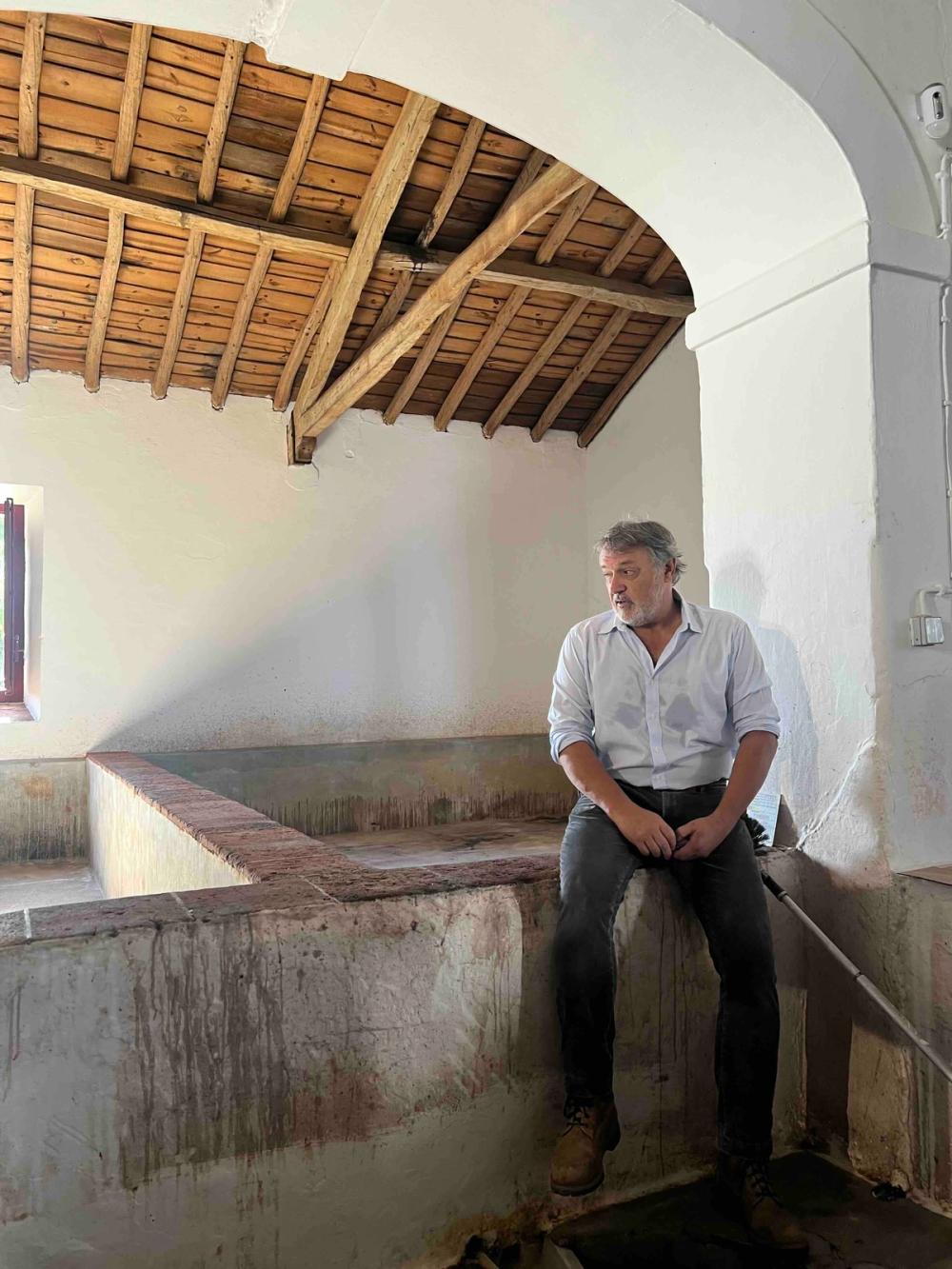
Iain Reynolds at winery Mouchao
Alicante Bouschet, a 19th-century French crossing of Grenache and Petit Bouschet, was created to bring colour and structure to lighter wines. In Alentejo’s schist, limestone and clay soils, the grape achieves both power and poise. The wines show freshness, acidity and longevity, producing complex, age-worthy reds that express their unique terroir.
Herdade do Mouchão, long a benchmark, continues to set the tone. Its Tonel 3–4, aged nearly a decade before release, is full of fig, prune, tobacco and menthol, underpinned by mineral tension. Casa Relvas explores Alicante’s modern side, fresher and more floral, shaped by careful canopy management and cool fermentations.
Herdade das Servas blends it with native Trincadeira for lighter elegance, while Herdade do Rocim champions both amphora and barrel styles, linking heritage with experimentation. After more than a century of wandering, Alicante Bouschet has found its purpose and its home in Alentejo.
The holistic approach
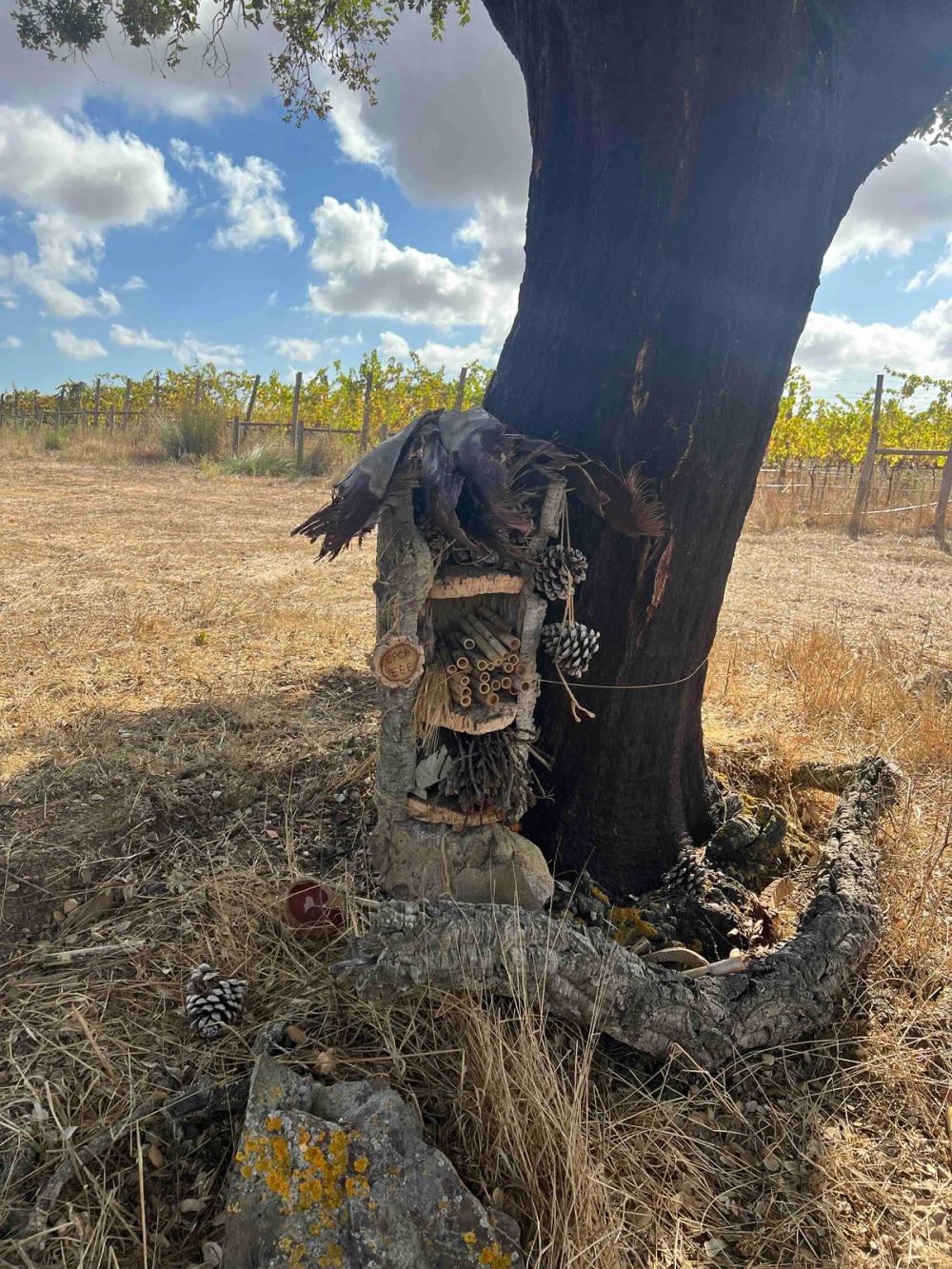
Insects hotel at Herdade dos Grous
To understand Alentejo’s regenerative vision, you have to look beyond the vines. Many estates are working farms, their land a patchwork of olive trees, cork oaks, walnut and almond groves.
Tapada de Coelheiros is home to deer, dry-farmed vineyards and a mosaic of cover crops. Bat and bird houses dot the property, supporting fauna that naturally control pests and disease. Bats can eat up to five times their body weight in insects daily, making them one of the most efficient natural pesticides.
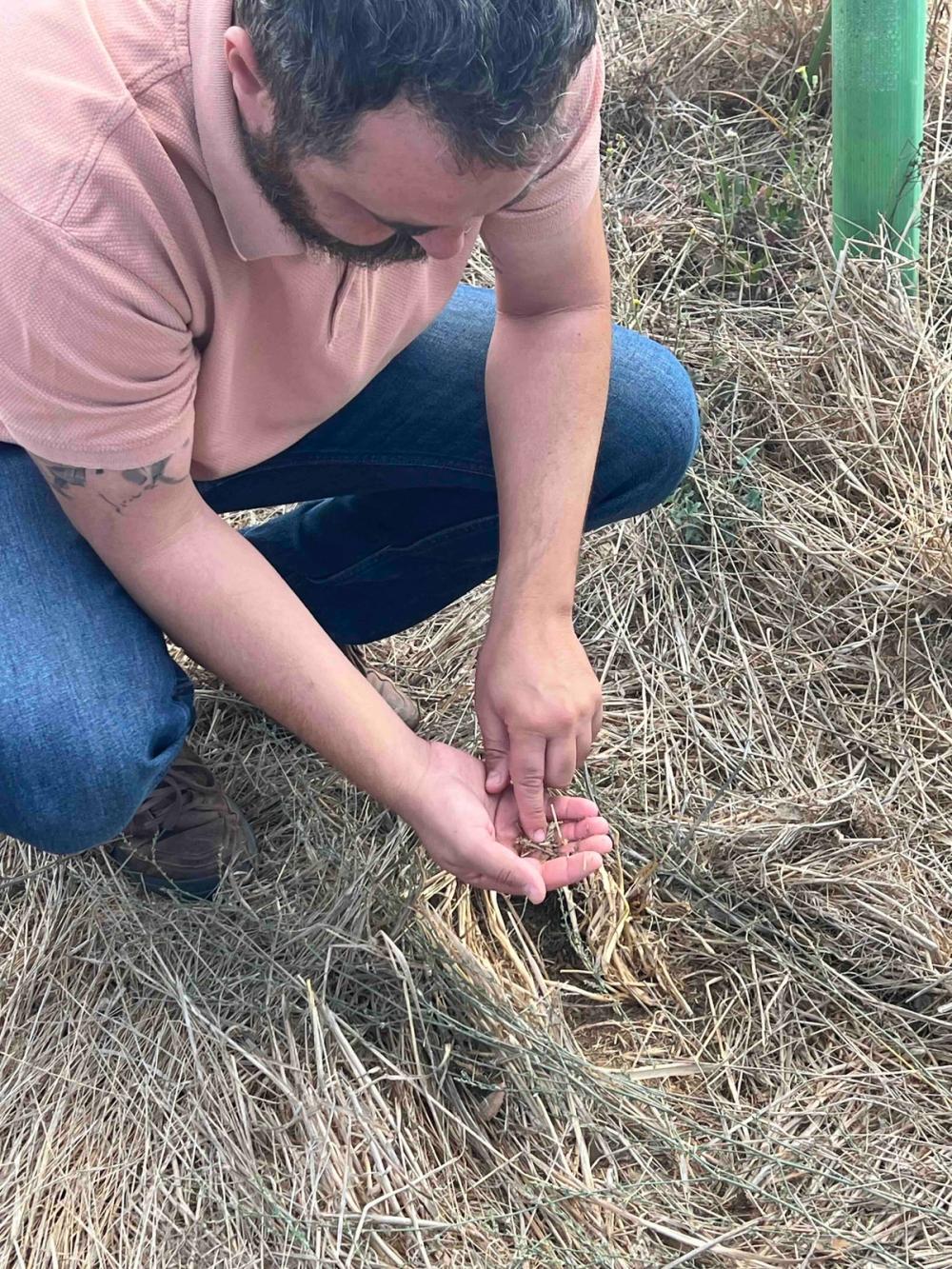
Herdade dos Grous - examining soil under the cover crop insulation system
Herdade dos Grous, a model of mixed farming, plants cover crops that are flattened to insulate the soil by up to 10°C, while sheep graze to create natural compost. The estate also works with local schools to promote regenerative education.
Together, these practices form an interconnected system. Agriculture here is designed to sustain itself, with nature and humans working as collaborators.
Investment in precision, data and innovation
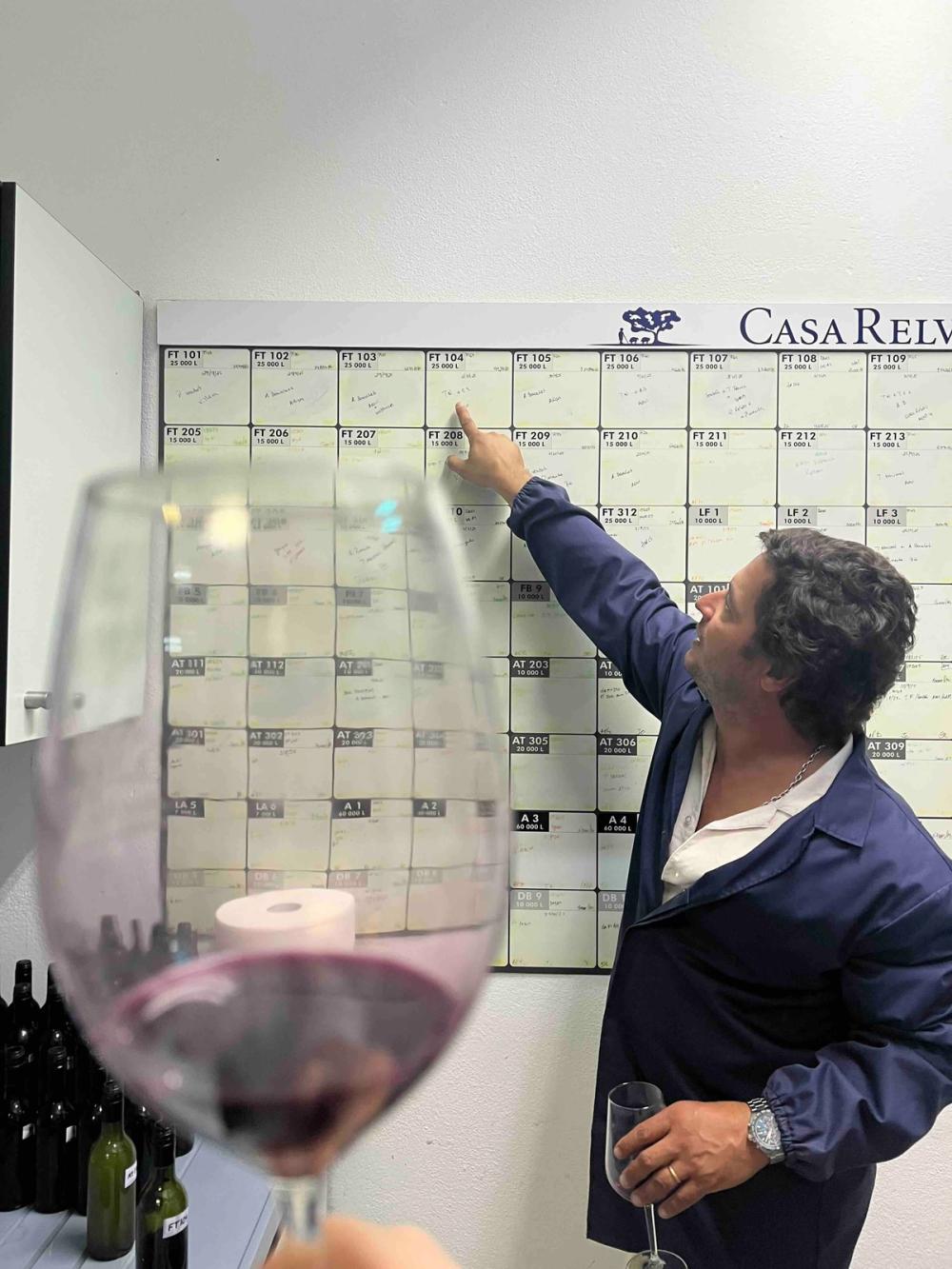
Alexandre Relvas and the wine data tasting system
Alentejo’s modern winemaking is as much about algorithms as amphorae. The region is investing heavily in technology and data-driven precision.
At Casa Relvas, wine samples are recorded and tasted twice daily, feeding an archive that will one day train AI models to predict harvest dates and blending profiles.
Herdade dos Grous has turned irrigation into a science, mapping soil moisture and adjusting flow through kilometres of lines while creating a full soil map of the estate.
Herdade das Servas uses drones for canopy and stress monitoring, guiding action before disease or drought can strike. The estate has also reduced its electricity use by shifting winemaking operations to midday, when its solar panels produce the most power.
Even cooperatives are embracing innovation. Adega de Borba employs sensors in barrels and tanks to measure humidity and fermentation activity, ensuring precision in ageing. These investments yield wines that are cleaner, fresher and more consistent, from vineyards that waste less, yield better and endure longer.
The Co-op scale with a human face
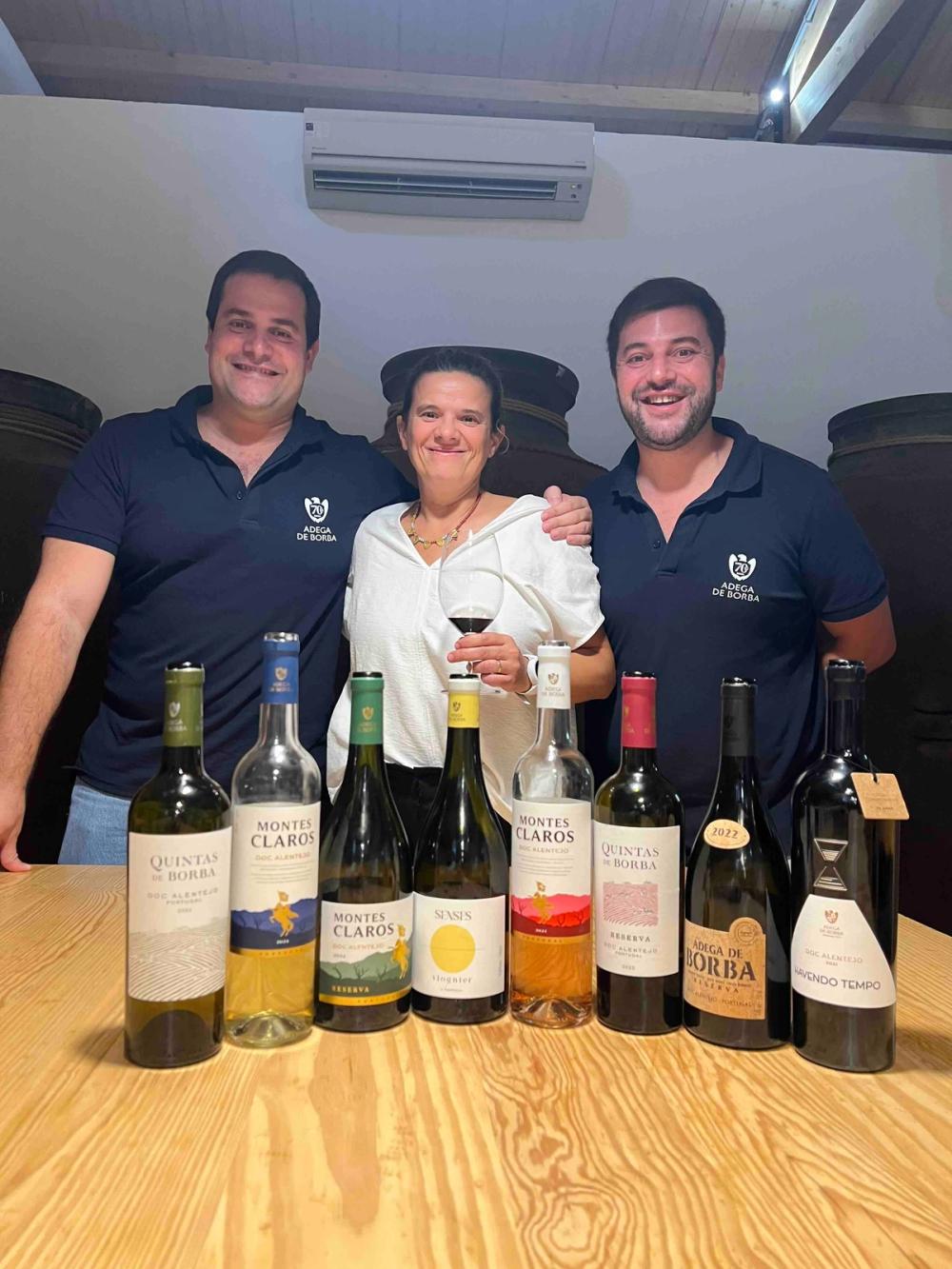
Adega de Borba team
Despite producing millions of litres annually, Adega de Borba maintains personal relationships with each grower. The winemaking team knows every vineyard, every family and every soil type, deciding where each grower’s grapes will go: into early-drinking whites, structured reserves or limited-edition library wines. It is community-based precision at scale.
The results are impressive. The Senses Viognier, grown on 400-metre limestone slopes, is luminous with lemon and peach. Havendo Tempo, a structured blend, captures patience and craft. The legendary Cork range, released only in the best vintages, continues to age magnificently, supported by a cork library dating back to 1962. Quality here is not luck but the result of a very smart and human approach to logistics.
Wine for everyone
An old Portuguese saying captures best Alentejo’s defining ethos, “Numa casa portuguesa fica bem pão e vinho sobre a mesa” which translates as “In a Portuguese home, bread and wine belong upon the table.”
From small family brands to large houses like Cartuxa, all maintain affordable ranges they take pride in. Even entry-level wines show quality far above that of mass-produced labels that fill UK supermarket shelves. As tariffs and trade decisions loom, now is the time to reassess what quality can be found at similar or lower prices and to follow the Portuguese ethos of good wine for everyone. That, too, is sustainability.
Talha renaissance
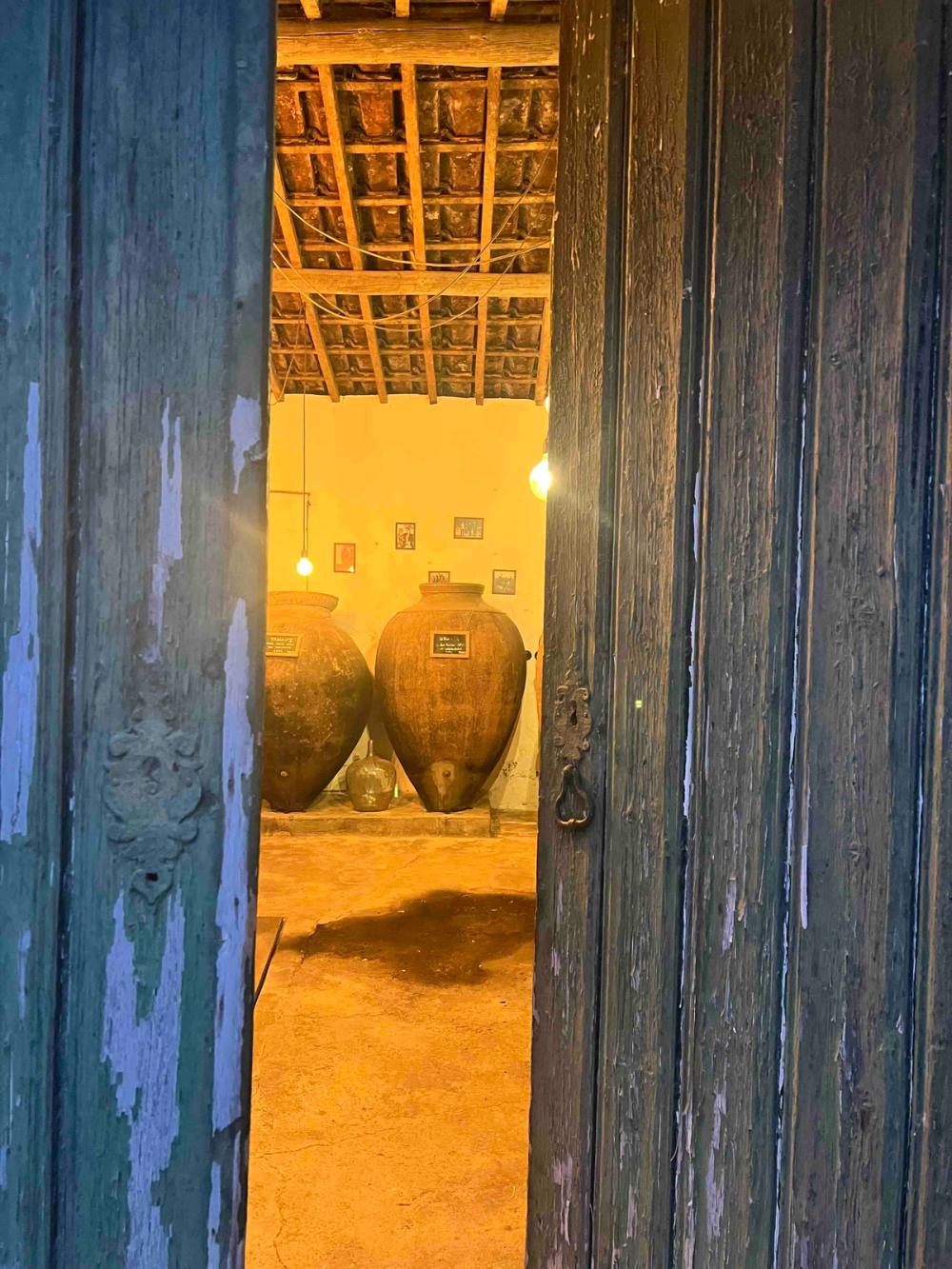
Rocim's Talhas
Talha winemaking, which is spontaneous fermentation in clay, has been revived as both cultural heritage and sustainable practice. Every winery, from Rocim to Servas, keeps at least a few of these historic vessels, some dating back centuries. The oldest I have seen, at Herdade das Servas, bears the date 1667.
Clay, a natural and reusable material, offers gentle oxygenation and purity of flavour. Many estates now blend amphora wine into modern cuvées, adding texture and energy. At Rocim, the annual Talha Festival (Amphora Wine Day) celebrates this living tradition, showing that sustainability and antiquity can share the same glass.
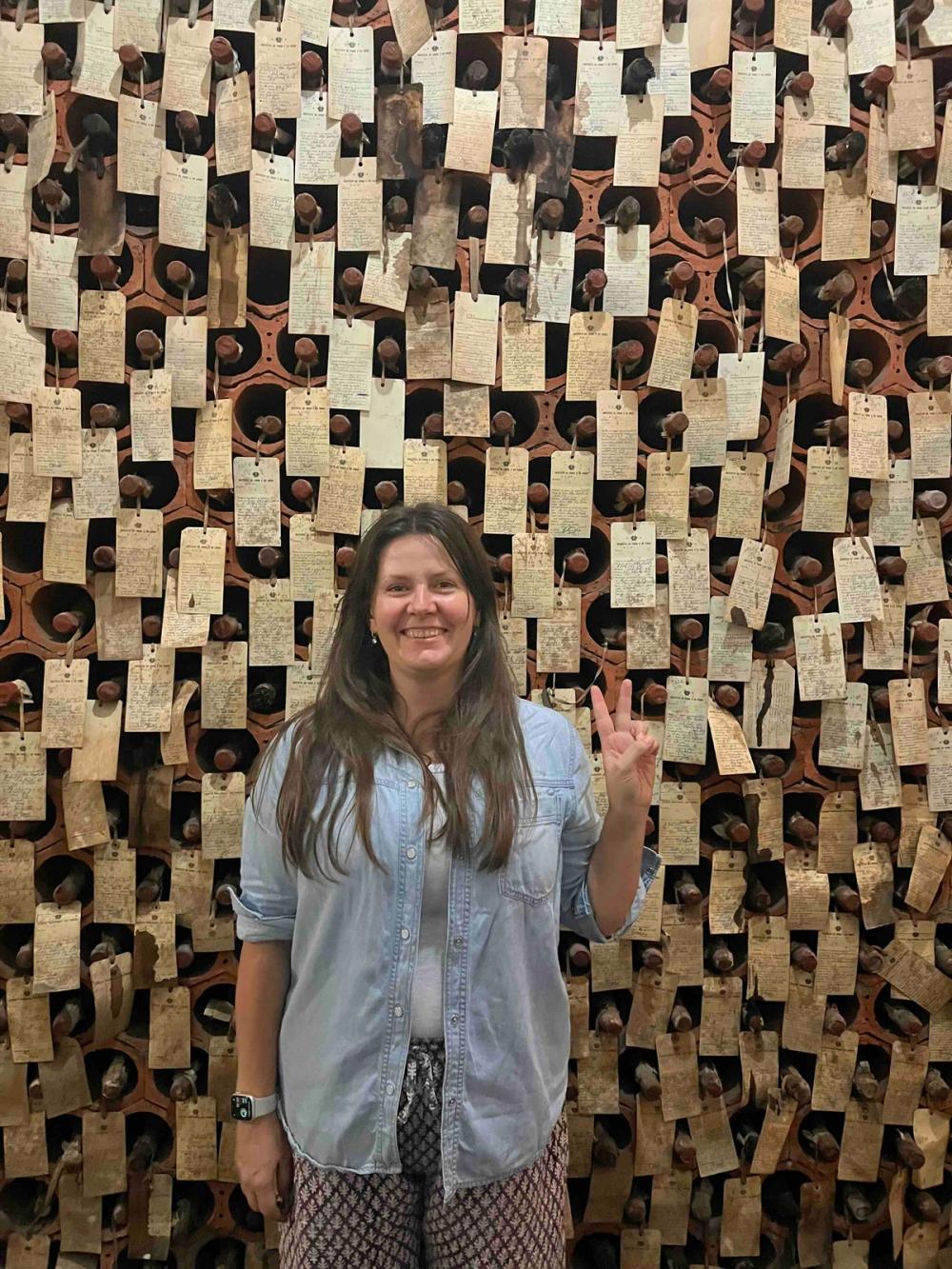
Author Joanna Dabrowska at Adega de Borba's library of Cork Label wines
Looking ahead: Naturally Selected, Naturally Unique
On 20 October, the Nash Conservatory at Kew Gardens will host Naturally Selected, Naturally Unique – Wines of Alentejo, an event highlighting the region’s Sustainability Programme (WASP) and announce upcoming projects and initiatives for the next five years to come - namely the latest partnership with Partícula Verde, who has been able to transform backing paper waste from wine labels into reusable raw material.
Through expert talks and a masterclass by wine critic Jamie Goode, the event will showcase the regenerative spirit of this remarkable region.
It takes place between 2pm to 5pm with leading experts from Alentejo, the UK, and beyond will share the achievements of this pioneering sustainability certification, along with new partnerships and projects on the horizon.
Speakers include:
- Luís Sequeira: President of the Wines of Alentejo.
- João Barroso: director for Sustainable Development and R&D at Wines of Alentejo.
- Anne Jones: Wine and drinks sustainability consultant.
- Patrick Schmitt MW: Editor-in-Chief of The Drinks Business.
- Åke Thidell: Sustainability researcher and Professor at Lund University, Sweden.
- Iain Richardson: Owner and winemaker at Herdade do Mouchão.
- Samuel Pinto: Co-managing partner of Partícula Verde, alongside his brother André.
Sustainability in Drinks October 21
Then on October 21, Sustainability in Drinks, for which WASP is a founding partner, takes place at Christ Church Spitalfields (E1 6LY) starting at 10:30am.
Visit the Sustainable Society Zone where WASP's stand will be, where you can discover their latest innovation with Partícula Verde, turning label backing paper waste into valuable raw material, and eventually new products.
Don’t miss:
11am: Education Zone - João Barroso - The Value of Certification.
11.15am: Carbon Management Zone - Miriam Mascarenhas - Getting Started with Carbon Footprinting.
1pm: Sustainable Society Zone - Prof. Åke Thidell - The Importance of Eco-labels and Certification.
2.15pm: Land Health Zone - Iain Richardson - The Importance of Soil Health. Check out the full programme and register for Sustainability in Drinks here.
If you would like to attend either event please contact winesofalentejo@thewineagency.pt.































